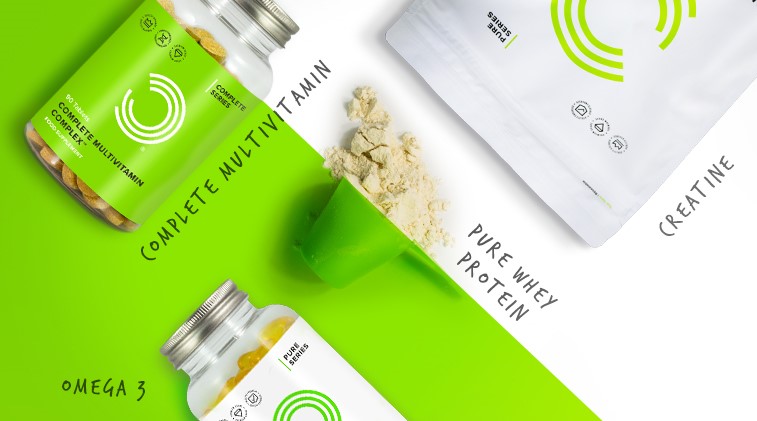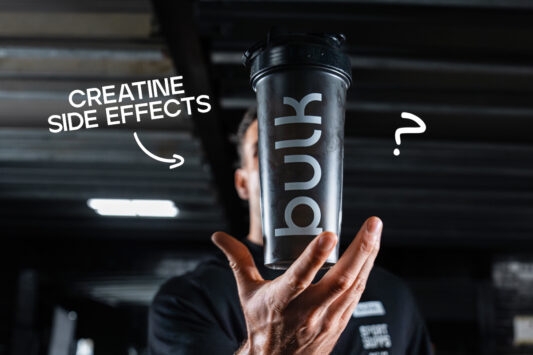When thinking about the best way to get value from supplements it is important to take a look at our goals, our current diet and then think about how we can use supplements to either plug in the gaps where maybe our day to day nutrition falls short or where supplements can offer us a cost-effective alternative to expensive whole foods. Supplementation without consideration of what they might ‘add’ can often be an unnecessary expense. However, if used correctly supplements can actually be great ways to save money without having to compromise on providing our bodies with all the essentials it need to help us reach our goals.
Low-Cost Protein Sources
Getting enough protein can be hard if you’re trying to stick to a tight budget, especially if you’re looking to build muscle or lose weight. As far as dietary essentials go, this nutrient is arguably the most expensive to get from whole food sources. However, in supplemental form, the use of exceptionally high-quality whey protein, can massively bring down the cost of hitting your daily requirements, providing you with a relatively cheap source of protein.
For example, 500g of chicken breast from a typical supermarket will cost around £4.00 and this would provide a total of 100g of protein, providing ~20g of protein at a cost of around £0.80. Comparing this to Pure Whey Protein™, which costs £9.99 for 500g; this provides 80g of protein per 100g at a comparative cost of around £0.60 per 20g of protein. Obviously, the more ‘bulk’ you buy our whey in (1kg, 2.5kg and 5kg) then the cost per serving comes down much further.
This also highlights the importance of buying in bulk wherever possible in order to make savings in the long run and this goes for whole foods as well. If we look at the above example it is entirely possible, if you shop around, to pick up 5 kg of chicken for around £20.00, dropping the price to £2.00 per 500g. In terms of buying bulk high protein foods we supply pasteurised egg whites that are much more cost effective than buying whole eggs (and a whole lot less messy as well!).
Low-Cost Carbohydrate Sources
Carbohydrates are generally quite cheap; bread, pasta, rice, potatoes and oats etc. can be bought in bulk for a few pence per serving; however, our more micronutrient dense carbohydrates such as fruits, greens and certain vegetables can be expensive. To save money in this area, buying frozen fruits and vegetables are a great way to ensure less waste and are often much cheaper than fresh produce. Many people think fresher means more nutrients, and although is to some extent true, frozen or tinned fruits and vegetables are still viable ways to ensure we get plenty of our essential vitamins and minerals in our diet.
Low-Cost Micronutrients
The ultimate money saving (and highly convenient) way to ensure we meet our daily micronutrient needs is through using vitamin and mineral supplements. These take the guess work in knowing that you are hitting your daily requirements and a month’s supply covering all your micronutrient bases will cost less than £10.00.
Cheap Sources of Fats
A cost effective way to ensure we have plenty of ‘good’ fats in the diet is to use nut butters. Again, the more bulk you can buy these in the more cost effective they can be. One essential fatty acid, omega-3, is only found in its most effective forms in oily fish. Omega-3 is important for many processes in the body including immune system function, cognitive function, controlling inflammation and general ‘cellular health’. Eating oily fish can be expensive, but omega-3 supplements are a cost-effective way to ensure you get your daily requirements and gain all of omega-3’s awesome benefits.
If we are trying to eat a diet entirely of fresh, whole foods then the cost can easily add up and this is a big reason why ‘eating healthy’ can be off putting for many people. However, with the use of targeted supplementation and buying foods in bulk each month then although the initial outlay may seem expensive, this has the potential to save a LOT of money each month and make healthy eating, or eating towards any goal, much more cost achievable.
Convenient sources of essential nutrients
Although where possible we encourage a diet of whole foods, we also appreciate that for some people it is not possible either financially or for convenience to eat in what people might consider an ideal way. This does not mean that using supplements is in some way ‘missing out’ just because foods may come in a powder or pill form and even for those on a relatively unrestricted budget supplements provide a convenient source of essential nutrients that in reality offer many of the same advantages as ‘real foods’.
Take home message
In fact, certain supplements such as creatine, which offers tangible performance benefits, cannot be typically consumed in sufficient amount in the diet so supplementation is recommended for those with muscle building or developing strength and power as their goal. For a supplement that is very effective it is also inexpensive, so those extra ‘pennies’ (and we mean pennies) we save by buying cost effective food supplements and foods in bulk can then be used to buy those supplements that are going to be of benefit to our training that we can’t get from whole foods alone.
















